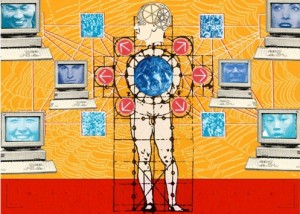The Centre for the History of the Emotions at Queen Mary University of London invites applications from outstanding post-graduate students wishing to pursue doctoral research into aspects of the histories of emotions and health. The deadline for applications is 31 January 2017.
This studentship is offered as a core element of a Collaborative Humanities and Social Science research project funded by the Wellcome Trust. This interdisciplinary project is entitled ‘Living With Feeling: Emotional Health in History, Philosophy, and Experience’. Candidates can read more about the project at the ‘Living With Feeling’ website.
Applicants will normally have attained (or expect to attain by the end of the academic year 2016-17) a Masters qualification that will equip them to pursue doctoral research in this area. We particularly welcome applications from black and minority ethnic candidates, who are currently under-represented within QMUL at this level
The Centre for the History of the Emotions has a strong commitment to undertaking engaged research of a kind that connects with work in other disciplines and with many aspects of contemporary life, including the arts, education, healthcare, and public policy. We will especially welcome applications displaying a similar commitment.
Prior to completing an application, potential candidates should make email contact with Professor Thomas Dixon, Dr Rhodri Hayward, or Dr Elena Carrera, to establish whether a suitable supervisory team will be available.
The studentship will include tuition fees, a budget for travel and research expenses, and a starting annual stipend of £22,278. The studentship will commence in September 2017 and run for three years.
In order to apply, candidates must complete a QMUL online postgraduate research application form, indicating their interest in the Wellcome Trust ‘Living With Feeling’ studentship, and including a CV, two references, academic transcript(s), a one-page personal statement and a 1,500-word proposal detailing the ways in which they plan to address the themes of the studentship.
Further Information about the ‘Living With Feeling’ Project
In the twenty-first century ‘emotional health’ is a key goal of public policy, championed by psychologists, the NHS, charities, and economists. Those lucky enough to enjoy good ‘emotional health’ are considered less likely to suffer from a range of mental and physical disorders, such as depression, addiction, anxiety, anorexia, irritable bowel syndrome, or heart disease.
But what is the perfect recipe for emotional health? Who decides which emotions we should feel, and when, in order to be healthy? Living with Feeling will explore how scientists, doctors, philosophers, and politicians – past and present – have engaged with human emotions such as anger, worry, sadness, love, fear, and ecstasy, treating them variously as causes or symptoms of illness or health, or even as aspects of medical treatment.
The project will connect the history and philosophy of medicine and emotions with contemporary science, medical practice, phenomenology, and public policy, exploring three overlapping meanings of ‘emotional health’:
- The emotional dimensions of the medical encounter between patients and doctors, including the experiences of those suffering from chronic conditions, and the roles of empathy and compassion within this relationship.
- The emotional factors influencing physical and mental health, focussing on emotions as contributory factors to both illness and wellness, engaging historically with recent findings in neuroscience, immunology, psychotherapy, and public health.
- Emotional flourishing, understood as a state of healthy balance in an individual’s emotions; including historically and politically contingent assumptions about meta-emotional capacities such as empathy, self-control, self-esteem, mindfulness, and resilience.
